The pope's two-day trip to Southern Italy and Puglia started with a visit to this seaside town where St. Peter was believed to have arrived in his travels to Rome from the east. Images from the Mass at Santa Maria di Leuca's sanctuary follow.



YOUNG PEOPLE: BE APOSTLES TO YOUR PEERS
VATICAN CITY, 14 JUN 2008 (VIS) - At 8 p.m. today Benedict XVI landed at the airport of Brindisi where he was welcomed by the religious and civil authorities of the region. He then travelled by car to the city centre where he was greeted by the local population, and especially by young people.
The Pope recalled how Brindisi had once been "a place of embarkation for the East", and that it is still "a port open to the sea", where of late many refugees from Eastern Europe have arrived to find "refuge and assistance".
"Such solidarity forms part of the virtues that make up your rich civil and religious heritage", he said. "Among the values rooted in your land, I would like to mention that of respect for life, and especially attachment to the family which today faces attacks from many forces that seek to weaken it. How necessary and important it is, even in the face of these challenges, that all people of good will undertake to defend the family, the solid foundation upon which to build the life of all society".
Turning then to address young people, the Holy Father explained how he well understood both their enthusiasm for life and the problems afflicting them. "In particular", he said, "I understand the burden weighing upon many of you, and upon your future, because of the dramatic problem of unemployment. ... In the same way, I know that your youth is threatened by the lure of easy earnings, and by the temptation to find refuge in artificial paradises or to allow yourselves to be attracted by warped forms of material satisfaction.
"Do not let yourselves be ensnared by the trap of evil", he added. "Seek a life rich in values, in order to create a more just society, one more open to the future. ... It is up to you ... to ensure that progress becomes a greater good for everyone. And the path of goodness, as you know, has a name: it is called love".
"The love of God has the sweet and compassionate face of Jesus Christ", said the Holy Father, "and thus", he told the young people, "we have come to the heart of the Christian Message: Christ is the answer to your queries and problems. ... Follow Him faithfully. And, in order to be able to meet Him, love His Church, feel responsible for her, do not seek to avoid being - each in his or her own environment - courageous protagonists".
"You are the young face of the Church. Do not fail, then, to make your contribution so the Gospel she proclaims may spread everywhere. Be apostles to your peers".
Following the meeting, the Holy Father travelled to the residence of the archbishop of Brindisi-Ostuni where he spent the night.
THE CHURCH IS CALLED TO ESTABLISH THE KINGDOM OF LIFE
VATICAN CITY, 15 JUN 2008 (VIS) - At 9.15 a.m. today, in the residence of the archbishop of Brindisi-Ostuni, the Pope met with local Benedictine and Carmelite cloistered nuns. At 10 a.m. he travelled by car to the Sant'Apollinare quay of the port of Brindisi where he celebrated a Mass which was attended by some 70,000 people.
"The biblical texts we have just heard", said the Holy Father in his homily, "help us to understand the truth of the Church. ... The first reading ... narrates God's covenant with Moses and Israel in Sinai". It expresses "God's perennial plan ... to save all mankind through the sanctification of a people". The Gospel reading, the Pope went on, explains the call and mission of the twelve Apostles, who after the Pentecost proclaimed the Good News by "speaking in tongues". At that moment, "the Universal Church was made manifest, reunited in a single Body of which the Risen Christ is Head and, at the same time, sent out by Him to all nations, even unto the ends of the earth".
"The twelve Apostles co-operated with Jesus in establishing he Kingdom of God, in other words His beneficent lordship which brings life and life in abundance for all humanity. In essence, the Church, like Christ and with Him, is called to establish the kingdom of life and to drive out the dominion of death ... so that God Who is love may triumph.
"This", the Pope added, "is God's plan: to bestow His life-generating love upon humanity and the entire universe. A plan, nonetheless, that the Lord wishes to implement only while respecting our own freedom, because love by its nature cannot be imposed. The Church is then, in Christ, the place for welcoming and mediating God's love. In this perspective it is clear how the sanctity and the missionary nature of the Church are two sides of the same coin. Only in as much as she is saintly - that is, full of divine love - can the Church achieve her mission, and its precisely by virtue of this task that God has chosen her and sanctified her as His property".
Reflecting further upon the link between sanctity and mission, the Pope noted that "it helps to recall that the twelve Apostles were not perfect men, chosen for their irreprehensible moral and religious qualities. They were certainly believers, ... but marked by their human limitations, sometimes serious limitations, ... like us, like all Christians. ... The Church is a community of sinners who believe in the love of God and allow themselves to be transformed by Him, and thus they become saints".
Note the presence of the Pontifical Dalmatic under the chasuble.
"The missionary method, in other words the inner attitude that is translated into real life, ... cannot but be that of Jesus: the method of 'compassion'", said the Pope. "Christian compassion has no connection with pietism, with the simple provision of assistance. Rather it is a synonym of solidarity and sharing, and it is animated by hope. ... Animated by the hope in which you have been saved", Benedict XVI told his hearers in conclusion, "be signs and instruments of the compassion and mercy of Christ".
![[Unam Sanctam]](https://blogger.googleusercontent.com/img/b/R29vZ2xl/AVvXsEiymQ2adTjpZ1ABhPBbBBquiPCxeQrc4Jy_97vOikT0wGQeJleriiXQy6ebnb0jrYe-TfvcK77txStB4aIwVAdD41ZdMkVfNtFGC0JX6LBV9B8mfeRZaIAM7Sj-011ag3DiKQzv/s1600/headerdivinemercy.jpg)






























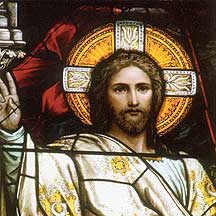







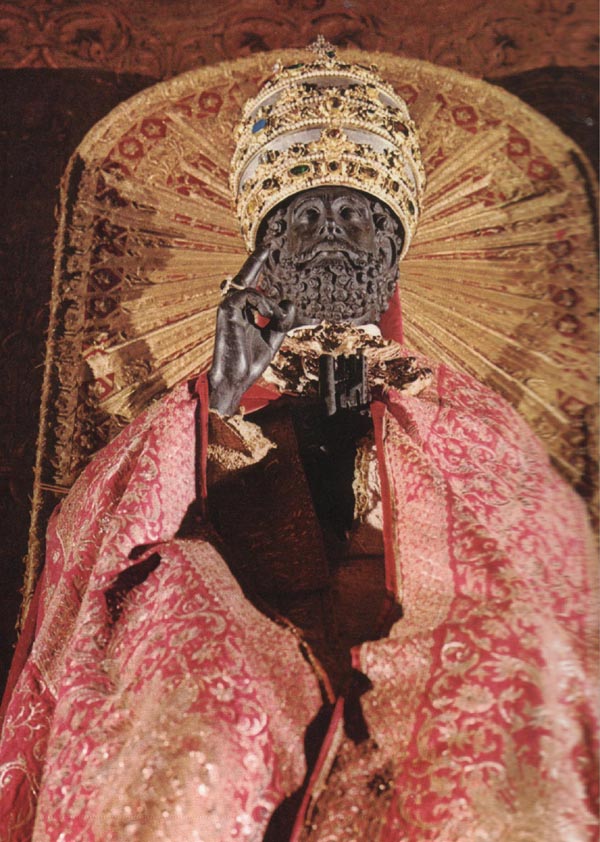
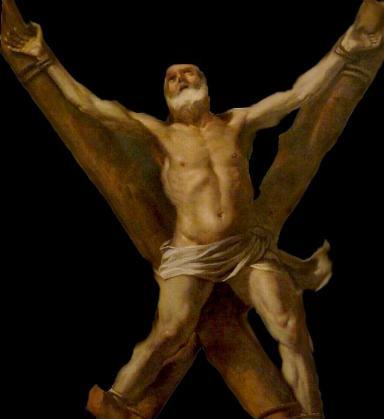




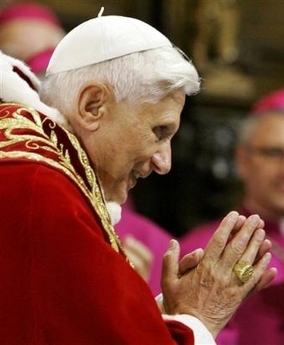






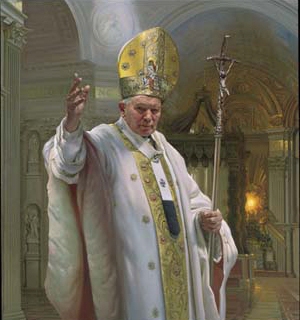
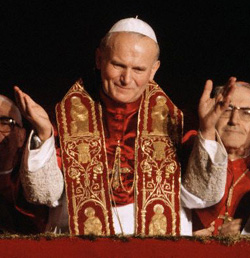
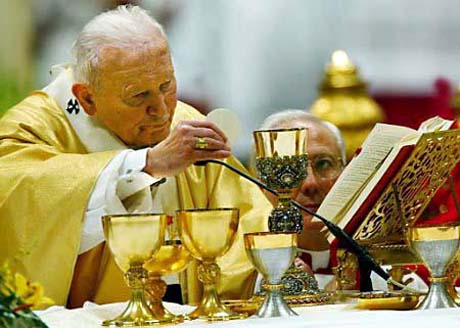








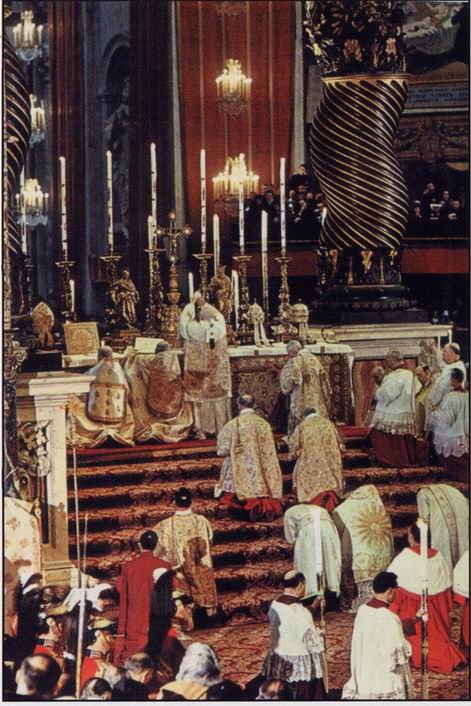

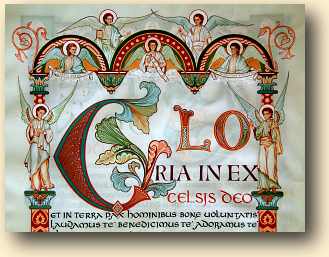

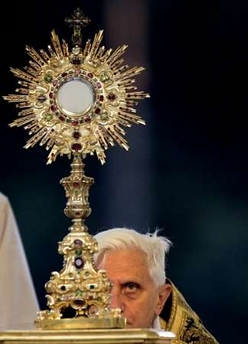







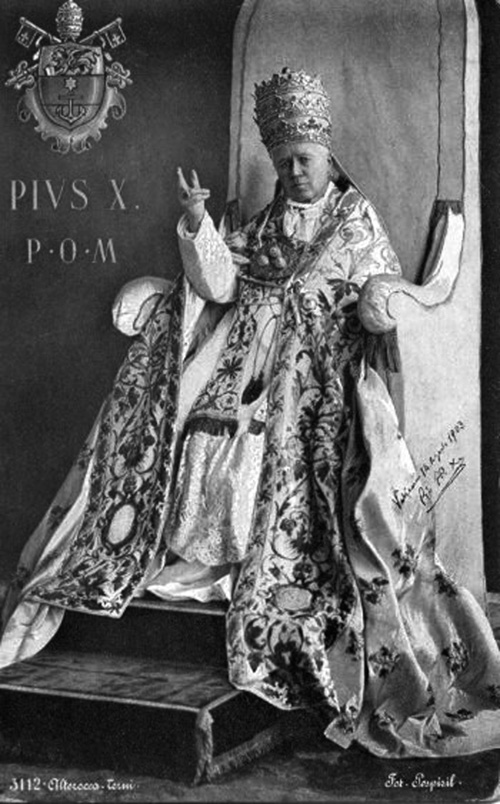



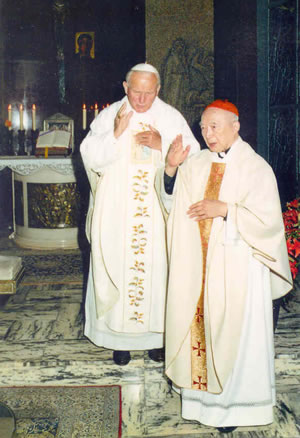





1 comment:
Good pictures & article! Thx for posting :)
Post a Comment